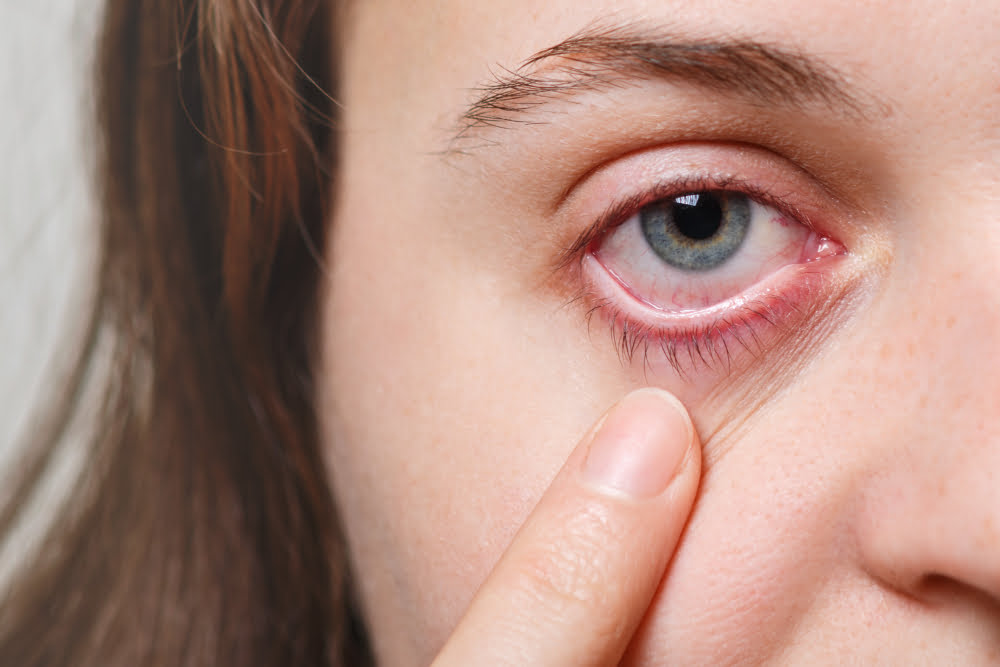Discover 8 Different Types of Eye Defects Affecting Vision
Eyes are the windows to the soul, but what happens when those windows become a bit blurry or distorted? In this comprehensive guide, we’ll dive into the different types of eye defects that can affect your vision. From the common to the rare, we’ll explore these eye conditions that can impact how you see the world.
Exploring the Landscape of Eye Defects

Image by user18526052 on Freepik
Myopia (Nearsightedness)
Is that street sign up ahead looking a bit fuzzy? You might be experiencing myopia, a condition where distant objects appear blurry. This occurs when the light entering your eye is focused in front of the retina instead of on it.
Symptoms:
- Blurred vision when looking at distant objects
- Squinting to see clearly
- Eye strain or headaches
Treatment and Correction:
- Prescription eyeglasses or contact lenses
- Refractive surgery like LASIK
Hyperopia (Farsightedness)
If your phone’s screen seems clear, but the text on a book is giving you trouble, hyperopia might be at play. This condition is the opposite of myopia – close-up objects are clearer while distant ones appear blurred.
Symptoms:
- Difficulty focusing on nearby objects
- Eye strain and discomfort after reading or other close activities
Treatment and Correction:
- Reading glasses
- Contact lenses or corrective surgery
Astigmatism
Imagine looking at a clock, and the numbers seem stretched or distorted. That’s the effect of astigmatism, a condition where the eye’s cornea or lens has an irregular shape.
Symptoms:
- Blurred or distorted vision at various distances
- Eye strain and discomfort
Treatment and Correction:
- Eyeglasses or contact lenses
- Corrective surgery in some cases
Presbyopia
As we age, our eyes change. Presbyopia is one such change, resulting in difficulty focusing on close objects, like a newspaper or smartphone screen.
Symptoms:
- Blurred vision at close distances
- Needing brighter lighting for reading
Treatment and Correction:
- Reading glasses
- Bifocal or progressive addition lenses
Color Blindness
Is the world a bit less colorful for some people? Color blindness, a genetic condition, makes it challenging to distinguish between certain colors.
Symptoms:
- Difficulty differentiating between specific colors
- Inability to see shades of red and green (most common type)
Treatment and Correction:
- No known cure; management through awareness
Glaucoma
Glaucoma isn’t just one eye condition – it’s a group of disorders that can damage the optic nerve, leading to vision loss. It’s often associated with increased pressure within the eye.
Symptoms:
- Gradual loss of peripheral vision
- Tunnel vision in advanced stages
Treatment and Correction:
- Prescription eye drops
- Laser treatment or surgery to reduce pressure
Cataracts
A natural part of aging, cataracts cloud the eye’s lens, causing blurry and foggy vision.
Symptoms:
- Blurred or hazy vision
- Sensitivity to glare, especially at night
Treatment and Correction:
- Surgical removal of the cloudy lens
- Replacement with an artificial lens
Macular Degeneration
The macula, responsible for central vision, can deteriorate over time, leading to macular degeneration. It can affect close-up tasks like reading or recognizing faces.
Symptoms:
- Blurred or distorted central vision
- Dark or empty spots in your vision
Treatment and Correction:
- Medications to slow progression (for some types)
- Lifestyle changes and visual aids
The Importance of Regular Eye Exams
Regular eye check-ups are crucial in detecting these eye defects early on. With timely intervention, many of these conditions can be managed effectively, preserving your precious eyesight. Remember, your eyes deserve the best care possible.
Conclusion
Our eyes are remarkable organs that allow us to experience the world around us. Understanding the various types of eye defects that can affect our vision empowers us to take better care of our eye health. From nearsightedness to macular degeneration, each condition has its unique impact and treatment options.
FAQs: Unveiling Clarity About Eye Defects
Can eye defects be prevented? While you can’t control all eye defects, a healthy lifestyle, and regular eye exams can help catch issues early.
Are eye defects hereditary? Many eye defects have a genetic component, so a family history can increase your risk.
How often should I get an eye exam? Adults should get a comprehensive eye exam every 1-2 years, and more often if advised by an eye specialist.
Can children develop these eye conditions? Yes, children can develop certain eye defects. Early detection is essential for successful management.
Are contact lenses suitable for all eye defects? While they can help with some conditions, your eye doctor will recommend the best option for your specific fault.
What’s the biggest misconception about eye defects? Assuming that all eye defects can be corrected with glasses is a common misconception. Some may require different interventions.
Is surgery the only option for treating cataracts? Surgical removal of cataracts is the most effective treatment, but your ophthalmologist will discuss alternatives with you.
Can a healthy diet prevent macular degeneration? A diet rich in antioxidants, vitamins, and minerals can support eye health, but it might not entirely prevent macular degeneration.




